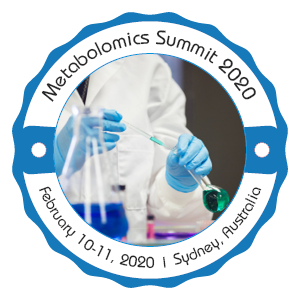Epigenomics and Epigenetics
Genetics refers to the study of genes, genetic variation, and heredity in living organisms. It is mainly considered a field of biology but intersects frequently with many other life sciences and is strongly linked with the study of information systems. Epigenetics refers to the study of effect on gene activity and expression by chromosomal changes and also heritable phenotypic change that doesn’t come from modification of a genome.
Epigenomics is the study of the complete set of epigenetic modifications on the genetic material of a cell, known as the epigenome. The field is analogous to genomics and proteomics, which are the study of the genome and proteome of a cell.
- DNA methylation
- Histone modification
- Genome wide approaches
- ChIP-Chip and ChIP-Seq
- Direct detection
Related Conference of Epigenomics and Epigenetics
Epigenomics and Epigenetics Conference Speakers
Recommended Sessions
- Case Reports
- Cancer Metabolomics
- Computational Methodologies
- Edibilomics
- Enzyme Nanotechnology
- Epigenomics and Epigenetics
- Lipidomics
- Mass Spectrometry based Metabolomics
- Metabolomics
- Metabolomics in Precision Medicine
- Microbial Metabolism
- Molecular Medicine and Diagnostics
- Next-generation sequencing
- Pharmacogenomics
- Proteomics
- Recent Advancements in Metabolomics
Related Journals
Are you interested in
- 3D Structure Determination - Structural Biology-2026 (France)
- Advanced Drug Delivery Systems for Metabolic Therapy - DRUG CHEMISTRY CONF 2026 (France)
- Advanced Techniques in Structural Biology - Structural Biology-2026 (France)
- AI & Computational Structural Biology - Structural Biology-2026 (France)
- Biochemistry and Biophysics - Structural Biology-2026 (France)
- Biomarker-Guided Drug Development - DRUG CHEMISTRY CONF 2026 (France)
- Chemical Biology Tools in Metabolic Research - DRUG CHEMISTRY CONF 2026 (France)
- Computational Approach in Structural Biology - Structural Biology-2026 (France)
- Computational Drug Design and Molecular Modeling - DRUG CHEMISTRY CONF 2026 (France)
- Drug Designing and Biomarkers - Structural Biology-2026 (France)
- Drug Resistance and Therapeutic Durability - DRUG CHEMISTRY CONF 2026 (France)
- Enzyme Modulation Approaches in Antidiabetic Drug Design - DRUG CHEMISTRY CONF 2026 (France)
- Epigenetic Regulation and Small-Molecule Therapeutics - DRUG CHEMISTRY CONF 2026 (France)
- Future Directions in Drug Chemistry for Diabetes Management - DRUG CHEMISTRY CONF 2026 (France)
- Hybrid Approaches for Structure Prediction - Structural Biology-2026 (France)
- Lipid Chemistry and Metabolic Regulation - DRUG CHEMISTRY CONF 2026 (France)
- Medicinal Chemistry Strategies for Metabolic Disorders - DRUG CHEMISTRY CONF 2026 (France)
- Membrane Proteins and Receptors - Structural Biology-2026 (France)
- Molecular Modelling and Dynamics - Structural Biology-2026 (France)
- Natural Product Chemistry in Diabetes Drug Discovery - DRUG CHEMISTRY CONF 2026 (France)
- Oxidative Stress Modulation through Drug Chemistry - DRUG CHEMISTRY CONF 2026 (France)
- Peptide and Protein-Based Drug Chemistry - DRUG CHEMISTRY CONF 2026 (France)
- Pharmacokinetics and Drug Metabolism Studies - DRUG CHEMISTRY CONF 2026 (France)
- Prodrug Design and Chemical Activation Strategies - DRUG CHEMISTRY CONF 2026 (France)
- Proteomics and Genomics - Structural Biology-2026 (France)
- Regulatory Chemistry and Drug Safety Assessment - DRUG CHEMISTRY CONF 2026 (France)
- Structural Bioinformatics and Computational Biology - Structural Biology-2026 (France)
- Structural Biology in Cancer Research - Structural Biology-2026 (France)
- Structural Virology - Structural Biology-2026 (France)
- Structural Virology and Infectious Diseases - Structural Biology-2026 (France)
- Structure-Based Drug Discovery - Structural Biology-2026 (France)
- Structure-Based Solutions to Global Health Challenges - Structural Biology-2026 (France)
- Structure-Function Relationships - Structural Biology-2026 (France)
- Structure–Activity Relationship Studies in Drug Chemistry - DRUG CHEMISTRY CONF 2026 (France)
- Synthetic Chemistry Innovations in Drug Development - DRUG CHEMISTRY CONF 2026 (France)
- Targeting Pancreatic Function through Drug Chemistry - DRUG CHEMISTRY CONF 2026 (France)
- The Structural Basis of Disease - Structural Biology-2026 (France)
- Translational Drug Chemistry from Bench to Clinic - DRUG CHEMISTRY CONF 2026 (France)

